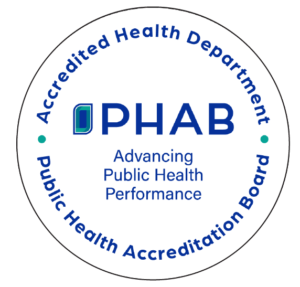Be Prepared:
- Keep emergency supplies on hand: non-perishable food, water, batteries, flashlight, radio or television, clock, extra cash, cell phone, emergency plans, smoke detector, etc.
- Install surge protectors for electric equipment, such as computers, fax machines, television, microwaves, etc. You may also want to install an Uninterruptible Power Supply unit for computers and other electronic equipment.
During the Power Outage:
- Do not call 911. Call your local utility department for information about the power outage.
- Turn off electronic equipment that was on before the outage.
- Turn one light on so you know when the power is back on.
- Use a battery-powered or crank radio or television for news and information on the power outage.
After the Power Outage:
- Wait a few minutes before turning back on major electric appliances. This will help stop problems if demand surges as power comes back on.
- Call your local utility for service if power has been restored to your area but your service is still off.
- If you used a portable generator, make sure to refuel it following the outage.
Hot-Weather Power Outage Tips:
- Open windows in your residence for proper ventilation.
- Drink plenty of water. Avoid alcohol or drinks with caffeine.
- Wear lightweight, light-colored, loose-fitting clothing. Also, a wide-brimmed hat and SPF 15 or higher sunscreen will help protect you from the sun.
- Visit an air-conditioned shopping mall, library or public building that has power.
- Take a cool shower or bath.
Cold-Weather Outage Tips:
- Insulate your home as much as possible. Hang blankets over windows and doorways and find a well-insulated room for living while power is out.
- Dress warmly. Wear hats, scarves, gloves and layered clothing.
- Use fireplaces for heat and light, but be sure to keep the damper open for ventilation.
- Do not burn charcoal indoors and do not use your kitchen gas range to heat rooms as this can lead to fire or a hazardous smoke condition.
- Turn on your faucets to a steady drip so pipes do not freeze.
Special Needs:
Make sure you have a friend or relative that will check in on you during a power outage if you are:
- 65 years old or older or four years old or younger;
- Sick or on medications; or
- Overweight.
If you use electric power for life-support devices:
- Make sure your local utility department knows about your special needs.
- Keep emergency phone numbers in a convenient location where they are easily seen.
- Have a back-up plan to stay with a friend or relative during a power outage or buy a generator.
Traffic Safety During Outage:
- Treat traffic signal lights that are out as a four-way stop, with the person on the right having the right-of-way.
- Be very careful in school zones and yield to pedestrians.
- Pedestrians who cannot see should ask for help crossing intersections.
- Pedestrians should be very careful in intersections.
- Pedestrians should make eye contact with drivers before crossing intersections.
Food Safety During Outage:
- Keep freezer and refrigerator doors closed to stop the loss of cold air.
- A fully loaded refrigerator may keep food fresh for about six hours.
- A fully loaded freezer may keep food frozen for up to two days.
- If any food in the refrigerator or freezer is warmer than 45 °F, throw it out.
Additional Tips:
- Do not run a generator inside a home or garage.
- If you use a generator, connect the equipment you want to power directly to the outlets on the generator. Do not connect a generator to a home’s electrical system.
Source: DeKalb County Board of Health https://health.dekalbcounty.org/

